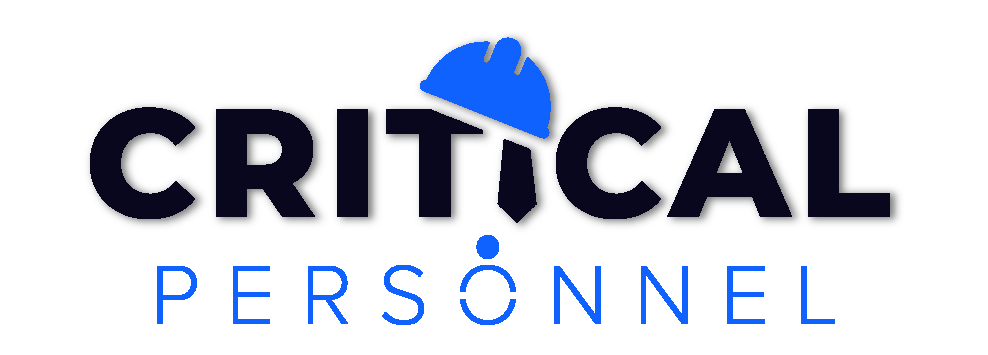Retaining Talent in the Construction Industry
Are you struggling to retain top talent in the construction industry? It’s a common challenge that many businesses face, despite being busy and turning down work. The truth is, finding the right people is only half the battle. Keeping them engaged, motivated, and committed to your company is equally important. In this article, we’ll explore the art of retaining talent in the construction industry and how Critical Personnel can support your retention efforts.

Understanding the Value of Retaining Talent
Retaining top talent in the construction industry is vital for the long-term success of your business. Highly skilled and experienced employees bring immense value to your projects. They not only deliver exceptional results but also contribute to a positive work culture and foster client satisfaction. Losing such talent can be costly, both in terms of time and resources. Therefore, it’s essential to prioritise talent retention and create an environment that encourages growth and loyalty.
Identifying the Pain Points
Before diving into the strategies for retaining talent, let’s identify the common pain points that lead to employee attrition in the construction industry. Understanding these challenges will help us develop effective solutions.
Lack of Career Development Opportunities
Employees seek growth and advancement opportunities within their organisations. If they perceive limited possibilities for career development, they may look elsewhere for better prospects. In the construction industry, where skills and expertise are highly valued, providing clear pathways for professional growth is crucial.
Inadequate Compensation and Benefits
Competitive compensation and attractive benefits packages play a significant role in talent retention. If employees feel undervalued or under-compensated, they may be tempted to explore other opportunities that offer better remuneration.
Poor Work-Life Balance
Construction projects often involve demanding schedules and long hours. Maintaining a healthy work-life balance is essential for employee well-being and job satisfaction. Failure to address work-life balance concerns may result in burnout and increased turnover rates.
Lack of Recognition and Appreciation
Recognition and appreciation for a job well done are powerful motivators. When employees feel their efforts go unnoticed or unacknowledged, they may become disengaged and less committed to their work. Regular recognition and rewards are essential for fostering a positive work environment.
Strategies for Talent Retention
Now that we’ve identified the pain points, let’s explore effective strategies for retaining talent in the construction industry. By implementing these strategies, you can create an environment where employees feel valued, supported, and motivated to stay.
1. Invest in Professional Development
Provide your employees with opportunities for continuous learning and growth. Offer training programs, workshops, and certifications that enhance their skills and expand their knowledge base. Encourage employees to set goals and provide the necessary resources to achieve them. By investing in their professional development, you demonstrate your commitment to their success and show that you value their long-term growth within the company.
2. Create a Competitive Compensation Package
Review your compensation structure to ensure it is competitive within the industry. Consider market trends, salary benchmarks, and the unique skills and qualifications of your employees. Offer attractive benefits such as healthcare plans, retirement contributions, and performance-based bonuses. Regularly evaluate and adjust compensation packages to align with industry standards and recognise the value your employees bring to the organisation.
3. Foster Work-Life Balance
Recognise the importance of work-life balance and take proactive steps to support your employees in achieving it. Implement flexible work arrangements, such as remote work options or flexible scheduling, where feasible. Encourage employees to take breaks, prioritise self-care, and maintain healthy work-life integration. By promoting work-life balance, you create an environment that values the well-being of your employees.
4. Cultivate a Positive Work Culture
A positive work culture is essential for employee satisfaction and retention. Foster a supportive and inclusive environment where employees feel heard, respected, and appreciated. Encourage open communication, collaboration, and teamwork. Recognise and celebrate achievements, both individually and as a team. Implement employee recognition programs that highlight exceptional performance and contributions. By cultivating a positive work culture, you create a sense of belonging and loyalty among your employees.
5. Provide Opportunities for Advancement
Establish clear pathways for career advancement within your organisation. Create promotion opportunities based on merit and provide employees with a clear understanding of the skills and competencies required for each level. Offer mentorship programs, job rotations, or project assignments that expose employees to new challenges and opportunities. By providing a clear progression framework, you motivate employees to stay and grow within the company.
Conclusion
Retaining top talent in the construction industry is a constant effort that requires a strategic and proactive approach. By implementing strategies focused on professional development, competitive compensation, work-life balance, positive work culture, and advancement opportunities, you can create an environment where employees thrive and choose to stay. Together, let’s build a future where your construction business thrives with a motivated and engaged workforce.
FAQs
- How can I identify the specific career development needs of my employees?
To identify the career development needs of your employees, conduct regular performance evaluations and career development discussions. Encourage employees to share their aspirations and goals, and assess their skills and competencies. Use this information to create personalised development plans that align with their individual ambitions and the needs of your organisation.
- How often should I review and adjust compensation packages?
It’s recommended to review compensation packages annually or biennially to ensure they remain competitive and aligned with industry standards. Additionally, conduct regular market research to stay informed about changes in compensation trends and adjust accordingly to retain top talent.
- How can I promote work-life balance in a demanding construction environment?
Promote work-life balance by implementing flexible work arrangements whenever possible. Allow for remote work options, flexible scheduling, and paid time off. Encourage employees to take breaks, prioritise self-care, and promote a supportive culture where employees feel comfortable setting boundaries between work and personal life.
- How can I create a positive work culture in my construction business?
To create a positive work culture, foster open communication and transparency. Encourage teamwork and collaboration through team-building activities and shared goals. Recognise and appreciate employees’ contributions regularly. Implement employee feedback mechanisms and act upon the feedback received. By promoting a positive work culture, you create an environment where employees feel valued and motivated to stay.
